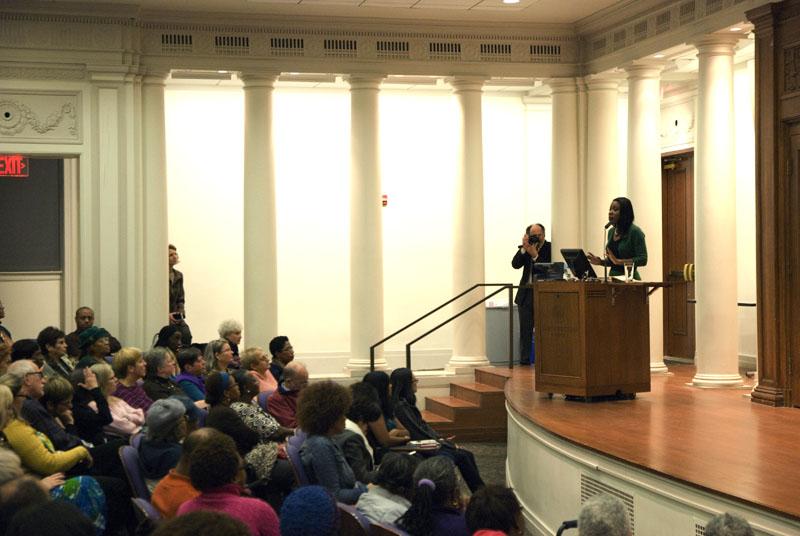Pulitzer Prize-winning author Isabel Wilkerson spoke to a packed audience Thursday about the Great Migration of the mid-20th century and black Americans’ rise from Southern oppression.
About 100 students and Evanston residents came to Harris Hall to hear Wilkerson discuss the topics covered in her book “The Warmth of Other Suns: The Epic Story of America’s Great Migration.” The Great Migration refers to the relocation of more than six million blacks from the South to the North, Midwest and West from 1916 to 1970.
Wilkerson’s speech was part of the Allison Davis Lecture Series, which was created in 1981 in honor of an African American scholar from Chicago.
Prof. Martha Biondi, chair of the African American Studies department, said Wilkerson’s book was selected for the lecture series because of “its unique ability to reach a broad audience.”
The book examines the Great Migration from three different perspectives: one traces the path of a black American headed toward the East Coast, another follows travelers on their way to the Midwest and a third looks at those venturing westward.
The process of finding three protagonists to demonstrate the different routes took more than two years, Wilkerson said.
The author stressed that her priority in writing the book was to give the reader the sense of what migration truly felt like. To do so, she told true stories of the historical Southern racial segregation, which Wilkerson called a caste system.
In one example, a court case was postponed because the court did not have a separate Bible for the black defendant to swear on, and white defendants refused to use the same one.
“The caste system was so arcane,” Wilkerson said.
She also touched on the cost of oppression for black society in America. Wilkerson presented the image of blacks who were forced to work as sharecroppers. She said many of them lacked the resources to fulfill their potential.
“What talent was left untapped?” she said.
Wilkerson reminded the audience that although migration gave blacks from the South the chance to choose where they would live and how they would apply their skills, the choice to leave did not come without consequences.
“People were forced to leave everything they knew,” she said. “They were freeing themselves. … They were also making a sacrifice.”
Wilkerson’s speech was received with a standing ovation. Afterward, she took questions from the audience and signed copies of her book. Some attendees addressed Wilkerson with personal stories of family members who moved north during the Great Migration.
Evanston resident Lori Osborne, 52, said she read Wilkerson’s book a year ago and was “blown away.”
“She really added depth to the stories,” Osborne said of the speech. “I feel very fortunate to see someone of this caliber.”
Email: [email protected]
Twitter: @kendra_mayer







